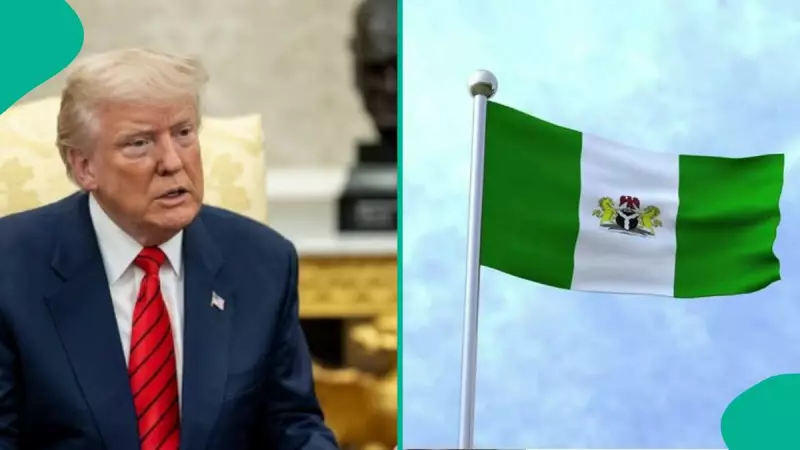
In a dramatic escalation of international pressure, twelve Nigerian state governors are now facing the prospect of severe United States sanctions following startling remarks from former President Donald Trump. The potential economic restrictions could cripple development projects and destabilize regional economies across Africa's most populous nation.
The Trump Factor: A New Era of US-Nigeria Relations
During a recent political gathering, Donald Trump issued a stark warning to African nations, particularly targeting Nigeria. The former president's comments have triggered immediate action within US diplomatic circles, with twelve Nigerian governors now identified for potential sanctions that could freeze their international assets and restrict their travel capabilities.
Which States Are Affected?
While the complete official list remains confidential, reliable sources indicate that governors from states experiencing significant security challenges and political unrest are primary targets. The selection criteria appear to focus on regions grappling with:
- Persistent security issues and terrorist activities
- High-profile corruption cases
- Political instability and electoral controversies
- Human rights concerns
Potential Impact on Nigerian Economy
The looming sanctions threaten to create ripple effects throughout Nigeria's economic landscape. International financial experts warn that restricted access to global markets could:
- Halt ongoing infrastructure projects
- Discourage foreign investment in affected states
- Complicate international trade relationships
- Weaken the Naira in foreign exchange markets
Diplomatic Fallout and Government Response
Nigerian federal authorities are reportedly engaging in emergency diplomatic efforts to prevent the implementation of these sanctions. The Ministry of Foreign Affairs has convened special sessions with US officials, while the Presidency is considering multiple contingency plans to mitigate potential damage to state economies.
Political analysts suggest that this development represents a significant test for Nigeria's diplomatic corps, requiring delicate navigation of complex international relations while maintaining national sovereignty.
What This Means for Ordinary Nigerians
Beyond the political implications, economic experts express concern about how potential sanctions could affect everyday citizens. Possible consequences include:
- Reduced state government spending on social programs
- Potential delays in salary payments for state employees
- Limited access to international development funds
- Increased economic hardship in already vulnerable regions
The situation remains fluid as diplomatic channels between Abuja and Washington continue to operate at the highest levels. Nigerian officials remain hopeful that dialogue and mutual understanding will prevail over punitive measures.





